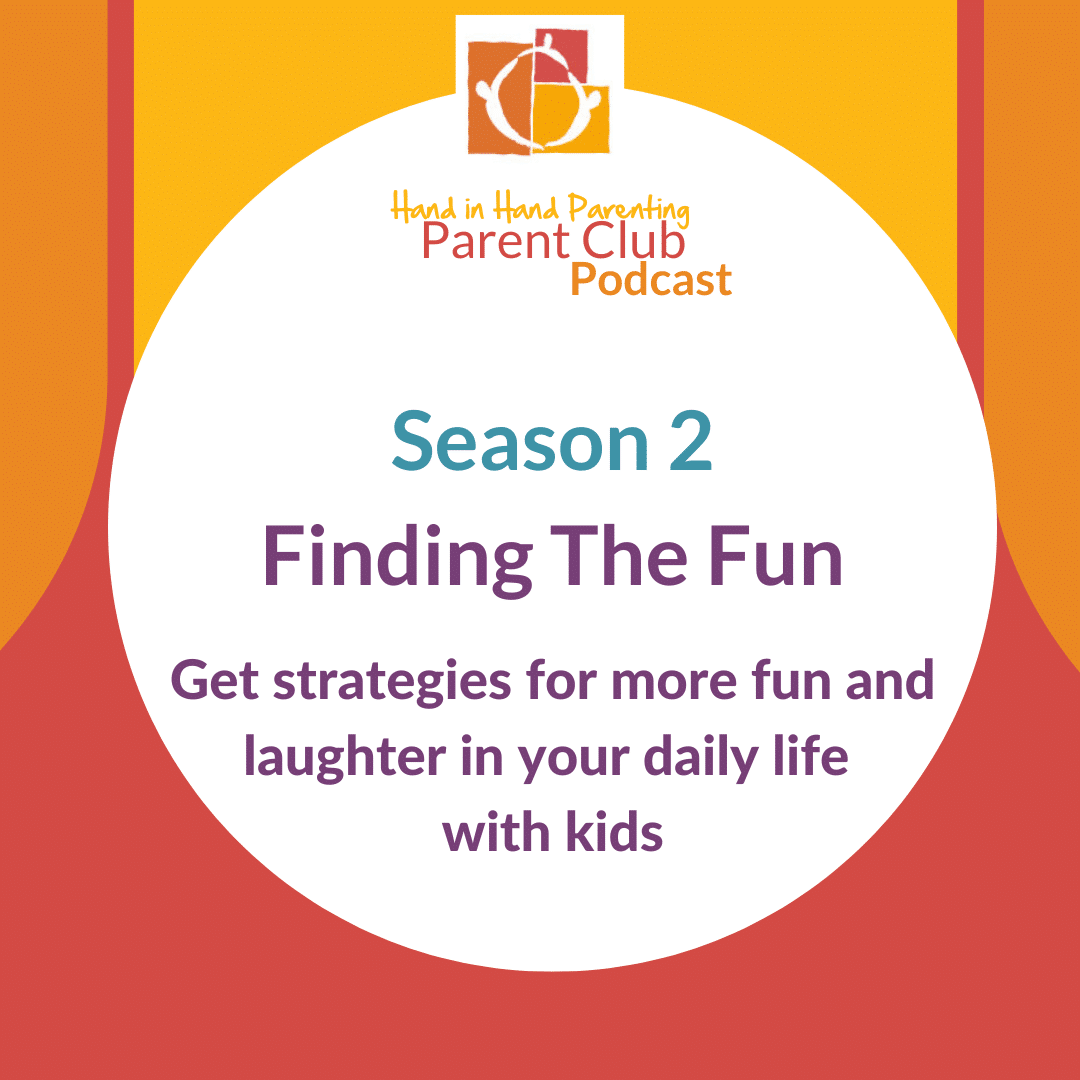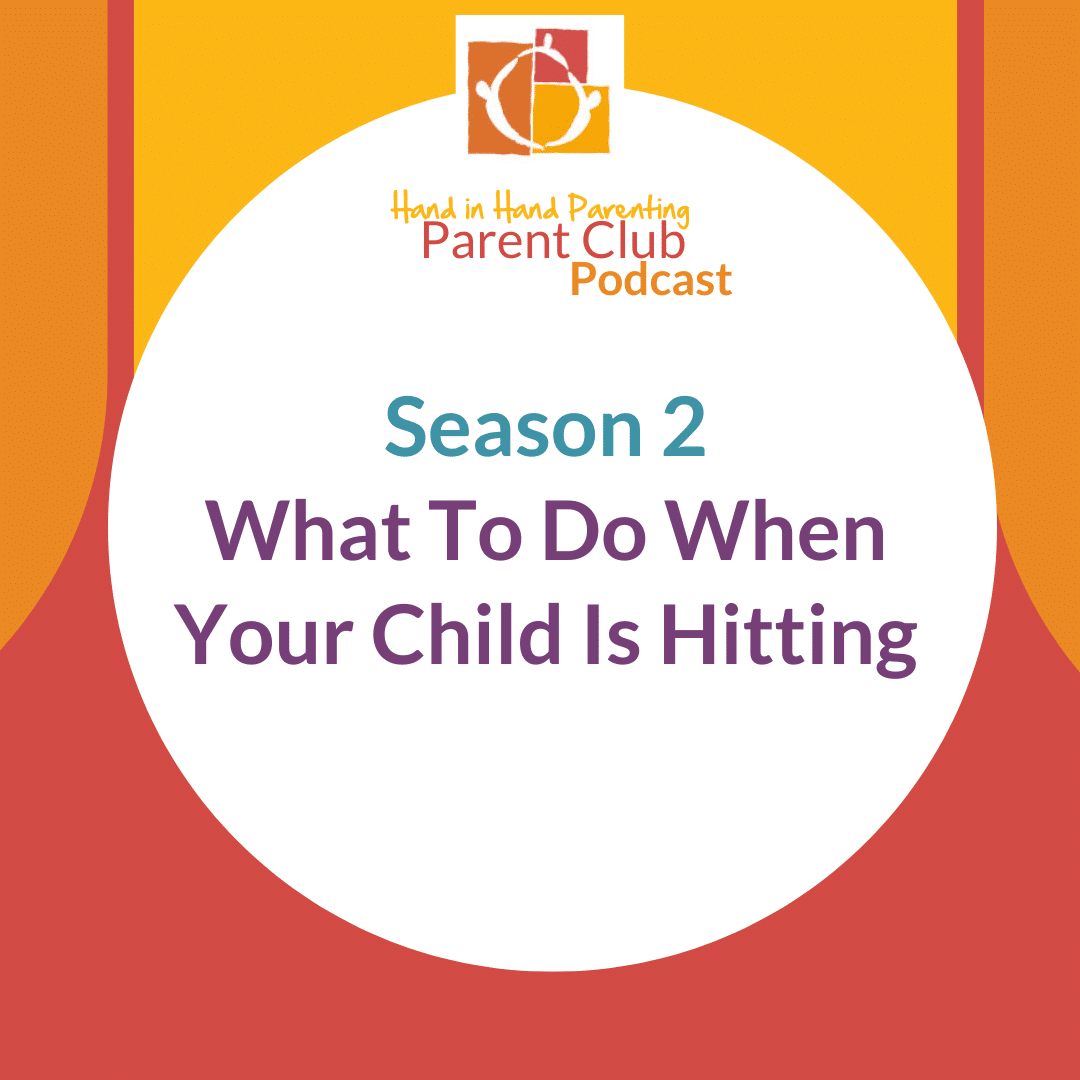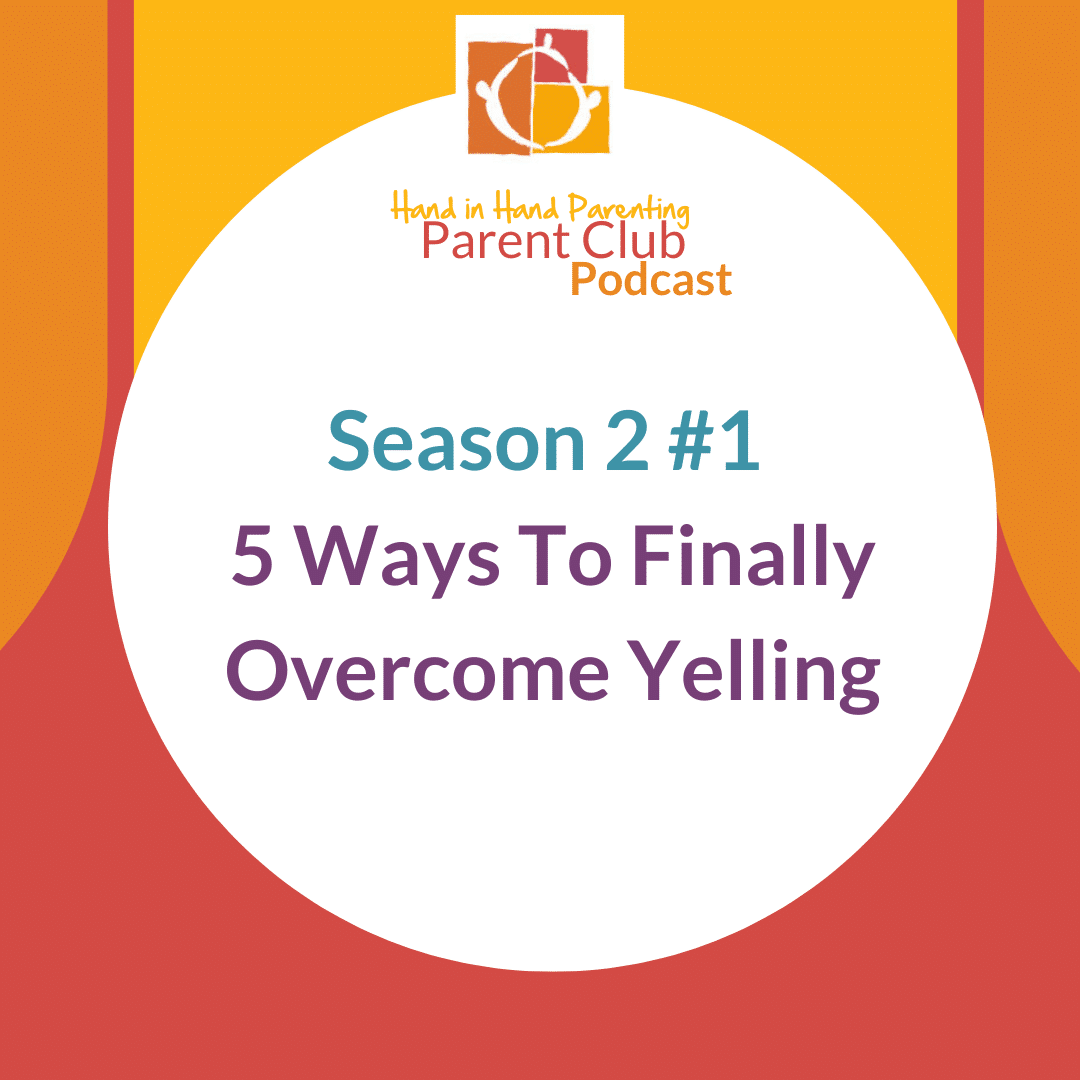Episode Transcript
Speaker 1 00:00:01 Welcome to the Hand in Hand Parent Club podcast. I'm Emily Murray, a hand in hand instructor and a mom of two.
Speaker 0 00:00:06 I'm Kathy Gordon, a single adoptive mom of a now young adult son, a hand in hand instructor, and we are both moderators of hand-in-hand, awesome membership program, the parent club. Every
Speaker 1 00:00:17 Week we'll be answering a parenting question. You'll hear about hand in hand, parenting's, powerful, respectful parenting tools. We'll share how they help you work with your child's feelings, especially when their behavior gets harder, confusing.
Speaker 0 00:00:29 You can feel good about using these tools. They've brought warmth and connection to our own families and to many thousands of families around the world who are using the hand in hand approach.
Speaker 1 00:00:39 That's why hand in hand and the parent club exist. We're here to support you and your family so you have more good, sweet, fun times together.
Speaker 0 00:00:49 Welcome back parents. So we've been talking about like what to do when we lose it and you know how to get out in front of it, but we all lose it from time to time. So our question this week is, what do I do after a regrettable moment when I've blown my top?
Speaker 2 00:01:09 So I really wish I didn't have so much good experience with this topic.
Speaker 0 00:01:15 Yes, I know. It's embarrassing. <laugh>, you're not alone.
Speaker 2 00:01:19 <laugh>. There's this idea out there that a good parent is this serene, caring, all-knowing never cross creature. And that is such a fairytale fantasy. The reality really is so much more human. Yeah, it's messy, it's awesome, it's hard, it's draining, it's delightful, it's funny, it's dreadful, and so on and so on, and so on. The full spectrum of human emotion, <laugh> is part of this whole parenting experience. And the the reality is that our relationship with our child is a very long-term one. A lot of growth and development happens for both of us over many, many years. And I'm sorry to break the news, but it turns out a human can't be perfect for that much time. So we are
Speaker 0 00:02:15 Actually good news to
Speaker 2 00:02:17 Make mistakes. Good news, yes. That sometimes the stress and heaviness of phase of development or certain behaviors just bring us to our knees because we're triggered or because we don't have the support or skills in place to respond to them with intention the way we want to. It just happens.
Speaker 0 00:02:41 Yeah. Well, so the key to weathering these moments and phases in a way that centers our relationship with our child is to get really good at repairs and apologies. Yes, as Emily said, you know, I'm, I'm embarrassed to admit, uh, that I, um, especially when my son was younger, and, um, I, before I found a listening partner through hand in hand, uh, where I could, you know, work on my triggers, um, I, I lost it a lot with my son. And, um, I got really good at repairing and apologizing and, um, y you know, I ca so I can't even tell you like a specific time because <laugh>, there were so many of them. Um, but, uh, what I do wanna share with you is that my repairing and my apologizing, um, it became part of my, our family culture. Now, I did actually work on those triggers, and I made a commitment, you know, to get better and not to lose it.
Speaker 0 00:03:47 So it's not, we didn't get into that cycle of like, apologize and do it again. Apologize and do it again. But as a single parent, you know, life was pretty stressful. So, um, I am embarrassed to admit, um, uh, it took a lot of work for me to get to a place where I was not losing it. So, um, but I, I, uh, but that repairing that apology, it became a p much a part of our family culture so that I, I see my son today, I mean, he'll apologize in our relationship. He apologizes in his relationships, um, his friends a and out in the world. Um, so w that's, we just wanna, you know, tell you that so that you know that you don't, that it, it's a good thing to apologize to our kids. And, and it's actually
Speaker 2 00:04:38 Magical. It's a really magical thing because when we do it and when we practice it, and when we really mean it, it gets absorbed by them. We don't have to teach them to apologize. We don't have to force an apology. It becomes something that they just embody and do.
Speaker 0 00:04:58 And yes, and, and it's also like not a shaming thing because we see an apology starts with having compassion for ourselves. Sometimes that harshness or yelling comes out of us before we can stop it. And if we're, if we get stuck in beating ourselves up about our mistake, then that shame is gonna prevent us from reconnecting with our child. So when we commit to being compassionate with ourselves, then we can quickly begin a repair. And, you know, a direct re repair starts with that apology. I'm sorry, that wasn't okay. Uh, I wasn't acting with understanding. I wanna be able to listen. So I'm gonna take a quick moment to get my ears back into listening mode so I can listen to you, or, yes, that was really grouchy of me. Can I'm sorry, can we try that again? Or, oops, that didn't come out right.
Speaker 2 00:05:52 So after that apology, um, that's like step one. And honestly, I think of it, um, as like, this is, for me, the apology is my moment to reconnect with myself so I can then reach out for the continuation of the repair. So, um, this idea that a repair can be, um, light and playful might be a new, a new way of thinking. Um, so there are a few options that we have for this, this next step. Um, it can be so fun to play with the repair as a rewind or a do over. And this is a really great family tool because it invites compassion, it invites patients and understanding and really the second chance, and it sends the message that we all make mistakes we can try again. And doing it in a silly way, especially can be really effective if you've been a little scary, because it gives them a chance to laugh at you.
Speaker 2 00:06:59 And the laughter helps you move your adrenaline intention out too. So, um, you can, uh, go with the, uh, silly, um, kind of like literally rewind your body. Um, you can, uh, like exactly like the, I mean, I don't know, are, are we dating ourselves with, like, when you used to rewind cassette tapes, <laugh>, they really made a funny sound. <laugh>. Yeah, yeah. Move your body backwards, um, you know, shuffle back through what you just did and move back to a point before you yelled and let them watch you do that and laugh at you. Um, doing that, um, you can also, uh, as an, as another option, kind of swing the pendulum in the completely opposite direction. If you were harsh, if you were judgey, whatever it was, um, swing the pendulum in the other way for your rewind and just be like playfully, uh, begging or playfully overly sweet or solicitous of them. Um, and just, you know, pour in the, the extreme silliness, the ex, the extreme, um, reaching for them because you just disconnected, um, with them. You broke a connection when you were harsh. And so you, you might have to work for a minute or two to, to kind of ease them back to being open to you. And play is just so helpful for that.
Speaker 0 00:08:32 So as we mentioned, this is, this is the beginning or this is the start of a repair where we, we start with ourselves. We let go of guilt, we have compassion for ourselves, and then we directly say, I'm sorry, either in a very heartfelt apology or by a silly rewind. And after you apologize, you might notice that your child still has some feelings, um, and maybe they're even off track as a result of us losing it. So then the next step is that you can indirectly work on their hurt by consciously and intentionally reconnecting That might look like offering some special time or some physical play, like rough and tumble where you're wrestling or pillow fights where they especially, and it's especially useful and effective where they get to get you and that can help complete the repair for them, where, you know, they get a chance to have a little power over you, uh, which can counter those, uh, feelings that they had when they felt powerless. So our one small thing that we'd like you to try this week is to be aware of that moment where you could say, whoops, rewind, do over, or, I'm sorry.
Speaker 2 00:09:59 I hope, I hope you find, uh, those moments, um, meaningful, useful warming in your relationship. Um, it's really a special gift, uh, that we can give ourselves and our families. Um, so next week we're gonna shake things up a bit and we are going to answer some of your questions. So we'll put a link in the show notes, um, to submit a question that we'll answer here on the podcast. And we are so excited to try this new way of supporting you. We'll see you then.
Speaker 0 00:10:32 Bye-bye.
Speaker 1 00:10:34 Thank you so much for tuning into the Hand In Hand Parent Club podcast. Please like and subscribe to hear more and to connect with us between these episodes. Come on over to hand in hand parenting.org to join the parent club where you can get coaching classes and live support.
Speaker 0 00:10:47 Come join our vibrant community of parents in the parent club who are committed to getting the support they need to be the parents they wanna become. We'd be honored to support you too. This podcast and the Parent Club are part of Hand in Hand Parenting, a nonprofit organization that supports parents all over the world. We are here for you when parenting gets hard.


